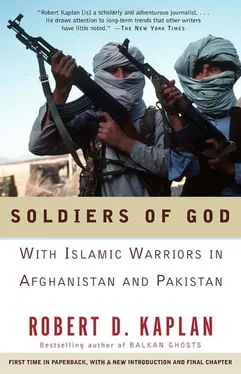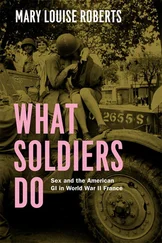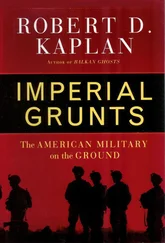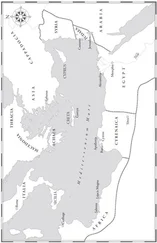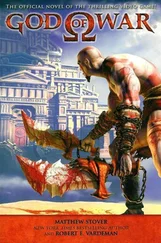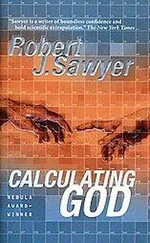We left Mahalajat and returned to Arghandab in time for the night fireworks display. Red flares crossed the sky as if in slow motion, followed by exploding artillery shells that caused small brush fires to break out in the mined desert between Kandahar’s southern suburbs and the ring road. Again the driver swerved and accelerated, and drove without headlights. Then, still in artillery range, he stopped and the others got out of the Land Cruiser to pray. With no water in sight, they washed their hands and faces with the dust, just as I had seen the fundamentalists do in Nangarhar.
Epilogue to the Original Edition

Something I Only Imagined
IT WAS THE WORST possible place to get a flat tire: in broad daylight on the undulating stretch of desert directly under the flight path between the Shindand and Kandahar air bases. Again the driver built a wobbly tower of rocks under the jack and was able to change the tire in just a few minutes. Nobody talked or worried about the driver under the car. Each of us knew what the other was thinking. I felt fear leave my gut as we climbed back into the Land Cruiser.
After fifteen minutes’ more driving, the smooth, American-laid asphalt of the Kandahar…Kabul road appeared on the open desert. At the same moment that we saw a spiraling pillar of black smoke rise from a burning truck on the road to our left, we heard the whining boom of two helicopter gunships swinging sideways and upward, away from us in the southern sky. The driver speeded up and over the other side of the road and zigzagged into the Arghastan desert, heedless of mines. But the gunships were already winging their way home to Kandahar air base.
Our flat tire had saved us. Had we arrived at the road crossing a few minutes earlier than we did, our fate might have been the same as that of the burning truck and its driver.
The rain came down in sheets, driven by the wind against the ranks of lonely tents on the muddy hillside. The mud was like glue and splattered all over my army surplus jacket, inside which I shivered. It was February 1988. A few miles outside the Northwest Frontier town of Miram Shah, near the Afghan border, a few hundred Afghan men, women, and children had just stampeded over the border to escape the fighting in Paktia province. They were the newest of over five million Afghans in refugee camps in Pakistan and Iran… more than five times the number of Palestinians in refugee camps. Stranded on the freezing mud, the UN-supplied tents were all these Afghans possessed. The children had no patous (blankets); against the wind, rain, and low temperatures all they had to wear were cotton shalwar kameezes. Several of them coughed and shivered.
With two other journalists I drove into Miram Shah and, for the equivalent of a few dollars in Pakistani rupees, bought several dozen old sweaters and pairs of pants to distribute to the children. A UN group or some other relief organization would have gotten around to distributing warm clothes to the children eventually. But for the moment, no one else was even thinking about them.
Away from Pakistan and Afghanistan, I could barely speak about the war. When I told people where I had been, their blank expressions indicated I might as well have been on the moon. Of the few who were truly interested in what I had to say, the retort that often greeted me was: “Really? Well then, how come we read so little about it in the newspapers?” The conversation would shift abruptly to another subject. It was nothing they needed to think or concern themselves about. It was happening so far away, to a people unrelated to them or to anybody they knew. Most listened to me only out of politeness, as though the stories I had brought back from central Asia were just that… stories, something I had only imagined.
American conservatives claimed that the media deliberately avoided Afghanistan because of a double standard regarding the Soviets. It was worse than that. Afghanistan, which on the scale of human suffering vastly overshadowed any other military conflict of the 1980s, was, quite simply, almost unconsciously ignored.
7

The Lawless Frontier
This past April in Quetta, the bleached-gray, drought-stricken capital of the Pakistani border province of Baluchistan, I awoke to explosions and gunfire. In search of the violence, my translator, Jamil, and I jumped into a four-wheel-drive Toyota and raced through the section of town inhabited by Pashtoon tribesmen. Suddenly we were surrounded by Pakistani soldiers, who forced us out of the car and pointed assault rifles in our faces. While they searched us, I saw two other soldiers with automatic weapons run along a high wall a few feet from where we stood. Shots rang out from inside the adjacent compound. By 11:00 A.M. five people had been killed and twenty wounded, and a large cache of weapons had been confiscated in a raid on the Pashtoonkhwa Milli Awami (Pashtoon National People’s Party), a group supporting an independent “Pashtoonistan” created out of Pakistani territory. The party stood accused of murders and kidnapping. Security forces claimed victory, but reports later circulated that party members had filtered back into the area with weapons.
Quetta’s mainly Pashtoon shop owners called a strike to protest the raid. It was the second strike that week against the recently installed military regime of General Pervez Musharraf. For the previous two days owners had shut their businesses to protest the regime’s plan to tax the cross-border smuggling of computer parts, fuel, automatic weapons, and much other contraband on which the province’s economy depends… as it depends on the heroin trade. The week I was in Quetta, there was also a series of bomb blasts in government buildings, relating to the arrests of a hundred members of an ethnic-Baluch clan who were wanted in connection with the murder of a judge. A few weeks before that two bombs had gone off inside army bases in Quetta. Musharraf’s regime was trying to extend taxation and the rule of law to this tribal area hard by Afghanistan, and it was encountering stiff resistance. Chiefs here were nervous about Musharrafs plan to hold local elections, which could threaten their power.
“The government wants to destroy the tribal system, but there are no institutions to replace it,” the head of the Raisani tribe, Nawabzada Mir Lashkari Raisani, told me inside his walled compound, which was protected by white-turbaned bodyguards armed with Kalashnikovs. “Much of my time is spent deciding cases that in another country would be handled by family courts,” he said, as we devoured mounds of rice and spicy grilled meats laid out on a carpet in his residence. “The tribes are large social-welfare networks. The government wants us to stop smuggling, and that will cause huge social distress.”
The Raisanis, numbering some 20,000, speak a Dravidian language of southern India… unlike the Turco-Iranian Baluchis and the Indo-Aryan Pashtoons, whose languages borrow heavily from Persian. The Raisanis are traditional enemies of the Bugtis, an ethnic-Baluch tribe. “I will not disarm, because I do not trust the government to protect me,” Mir Lashkari told me. He added, “Only the army needs Pakistan.” The tribes and ethnic groups, he said, can defend themselves without the state. Indeed, the international arms bazaar and the unrestricted flow of drugs and electronic goods have increased the tribes’ autonomy.
Inside Mir Lashkari’s compound, surrounded by a sandpaper desert and bare saw-toothed escarpments, it occurred to me that a topographical map would explain, at least partially, why both military and democratic governments in Pakistan have failed, even as India’s democracy has gone more than half a century without a coup… and why, I believe, Pakistan and its problems will for the next few years generate headlines.
Читать дальше
